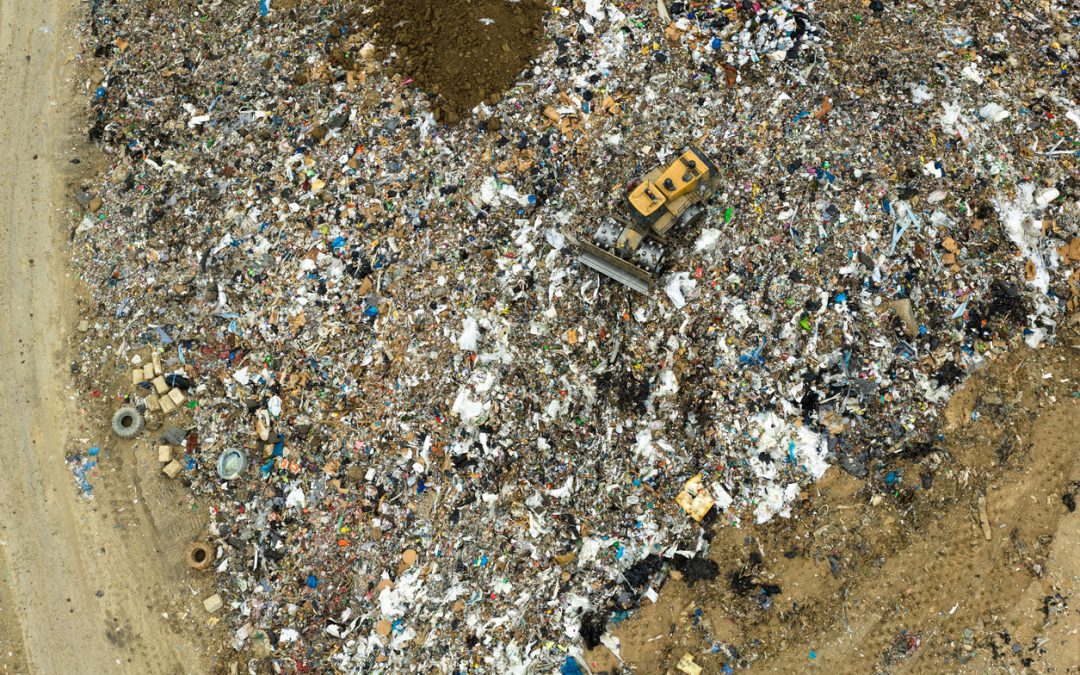Landfill & Waste in the United States
Landfills are a crucial part of waste management in the United States, serving as the final destination for a large portion of the country’s trash. They are engineered sites designed to safely contain waste, preventing it from harming the environment or public health. However, managing landfills responsibly involves strict regulations and various types of landfills to accommodate different types of waste.
What Are Landfills?
A landfill is a carefully constructed system where solid waste is isolated from the surrounding environment by using a bottom liner and daily covering of soil. Modern landfills are designed to minimize the impact on the environment by controlling leachate (the liquid produced by decomposing waste), managing methane emissions (a byproduct of organic matter decomposition), and preventing the contamination of nearby land and water sources. Landfills are not just dumps; they are highly regulated facilities aimed at containing waste in a way that reduces environmental risks.
What Goes into Landfills?
Landfills accept a wide variety of waste materials, but not all types of waste can go into every landfill. The primary types of waste disposed of in landfills include:
- Municipal Solid Waste (MSW): This consists of everyday items like food scraps, packaging, old furniture, household garbage, and plastics. MSW landfills are designed specifically for this type of waste.
- Construction and Demolition Debris: These materials include concrete, wood, drywall, and other debris from building projects.
- Hazardous Waste: Certain landfills are designed to accept hazardous waste like chemicals and toxic materials, but these have special regulations due to the potential danger.
- Industrial Waste: Factories and industrial facilities often produce non-hazardous waste that requires disposal in landfills. Examples include scrap metal, ash, and sludge.
Landfill Types:
There are several types of landfills in the U.S., each designed to handle specific types of waste:
- Municipal Solid Waste Landfills (MSW): The most common type, these landfills are where general household and business waste ends up. MSW landfills must meet stringent environmental protection requirements, including the use of liners to protect groundwater.
- Construction and Demolition (C&D) Landfills: These landfills accept waste specifically from construction and demolition activities. They typically handle materials like wood, metal, and concrete, and are less regulated than MSW landfills since the waste poses fewer environmental risks.
- Hazardous Waste Landfills: These landfills are designed to safely contain hazardous materials that could pose significant risks to human health and the environment. They are equipped with advanced containment systems and are subject to rigorous monitoring.
- Industrial Waste Landfills: These facilities are designed to manage waste from industrial processes that are not classified as hazardous. They handle materials like fly ash, sludge, and foundry sands.
Regulations Ensuring Landfill Safety
Landfills in the United States are subject to strict environmental regulations that are designed to protect human health and the environment. Several government agencies are involved in regulating landfill operations:
- Environmental Protection Agency (EPA): The EPA plays a major role in setting and enforcing landfill regulations under the Resource Conservation and Recovery Act (RCRA). RCRA outlines the design, monitoring, and closure requirements for landfills to ensure that hazardous materials do not contaminate air, soil, or water. The EPA also mandates regular inspections and monitoring of groundwater near landfill sites.
- State Agencies: While the EPA sets nationwide regulations, each state has its own agencies and additional rules to ensure compliance with federal standards. These agencies are responsible for permitting, enforcement, and monitoring of landfills within their jurisdiction.
- Occupational Safety and Health Administration (OSHA): OSHA regulates the working conditions of landfill operators, ensuring that workers have the appropriate safety gear and training to manage the site safely.
How Landfills Are Kept Safe
Several measures are in place to ensure that landfills do not pose significant risks to the environment or nearby communities:
- Liners and Leachate Collection Systems: Most modern landfills have a liner at the base to prevent contaminants from leaching into the soil and groundwater. Leachate is collected through drainage pipes and treated before being released or recirculated back into the landfill.
- Methane Collection Systems: As organic waste breaks down in landfills, it produces methane, a potent greenhouse gas. Many landfills have methane collection systems that capture the gas and either burn it off or convert it into energy.
- Regular Monitoring: Landfills are subject to ongoing environmental monitoring to ensure that air, soil, and water quality around the landfill are not adversely affected. This includes groundwater testing and methane monitoring.
- Capping and Closure Procedures: When a landfill reaches capacity, it is “capped” with a final layer of soil and sometimes synthetic materials. This cap helps to contain the waste and prevent further emissions of methane or leachate. Once closed, the site is monitored for many years to ensure long-term safety.
Conclusion
Landfills are a necessary part of waste management in the U.S., but they are highly regulated to minimize environmental and public health risks. With different types of landfills designed to handle specific waste materials, and strict government oversight, landfills today are safer and more sustainable than ever before. Understanding the role of landfills and their regulations can help us appreciate the complexity of waste management and encourage more sustainable practices like recycling and reducing waste production.
About HazChem Environmental Corp:
HazChem Environmental provides hazardous waste clean-up, transportation, and disposal services; industrial recycling; wastewater treatment services; 24/7/365 emergency spill cleanups, safety training, and many more environmental services. For over 30 years, HazChem has provided these services to industrial, corporate, education, government, medical, and other industries.

Compliant. Responsive. Safe.
Call 630-458-1910 for immediate assistance. Open 24/7/365
For a FREE, no-obligation quote, click the button below

